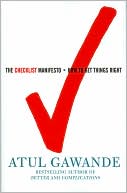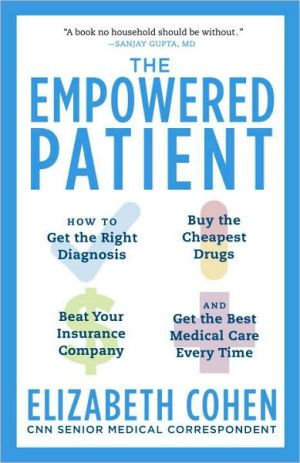Brain-Disabling Treatments in Psychiatry: Drugs, Electroshock, and the Psychopharmaceutical Complex
From the author of Toxic Psychiatry and Talking Back to Prozac:"Peter Breggin is the conscience of American psychiatry. Once more he updates us on the real evidence with respect to the safety and effectiveness of specific psychiatric medications and ECT. This information is needed by all mental health professionals, as well as patients and families." --Bertram Karon, Ph.D., Professor of Psychology, Michigan State University, Author of The Psychotherapy of Schizophrenia"Nowhere does false...
Search in google:
From the author of Toxic Psychiatry and Talking Back to Prozac:"Peter Breggin is the conscience of American psychiatry. Once more he updates us on the real evidence with respect to the safety and effectiveness of specific psychiatric medications and ECT. This information is needed by all mental health professionals, as well as patients and families." --Bertram Karon, Ph.D., Professor of Psychology, Michigan State University, Author of The Psychotherapy of Schizophrenia"Nowhere does false medical thinking do more harm than in the modern psychiatric argument that mental illness is easily diagnosed and then cured by a side-effect free drug. Nowhere is the correct psychiatric thinking more evident than in the books by Peter Breggin."-- William Glasser, MD, psychiatrist, author of Reality TherapyIn Brain Disabling Treatments in Psychiatry, renowned psychiatrist Peter R. Breggin, M.D., presents startling scientific research on the dangerous behavioral abnormalities and brain dysfunctions produced by the most widely used and newest psychiatric drugs such as Prozac, Paxil, Zoloft, Cymbalta, Effexor, Xanax, Ativan, Ritalin, Adderall, Concerta, Strattera, Risperdal, Zyprexa, Geodon, Abilify, lithium and Depakote.Many of Breggin's earlier findings have improved clinical practice, led to legal victories against drug companies, and resulted in FDA-mandated changes in what the manufacturers must admit about their drugs. Yet reliance on these drugs has continued to escalate in the last decade, and drug company interests have overwhelmed psychiatric practice.This greatly expanded second edition, supported by thelatest evidence-based research, shows that psychiatric drugs achieve their primary or essential effect by causing brain dysfunction, and that they tend to do far more harm than good.New scientific analyses in this completely updated edition include: Chapters covering every new antidepressant and stimulant drug Twenty new guidelines for how to conduct non-drug therapy A chapter describing how to safely withdraw from psychiatric drugs A discussion of "medication spellbinding," explaining how patients fail to appreciate their drug-induced mental dysfunctions Documentation of how the drug companies control research and the flow of information about psychiatric treatments Doody Review Services Reviewer:Michael Joel Schrift, D.O., M.A.(University of Illinois at Chicago College of Medicine)Description:This is the second edition of this contentious book written by the controversial anti-psychiatry psychiatrist Peter Breggin, who throughout his career has been a critic of biological psychiatry, psychopharmacology, and electroconvulsive therapy. His main thesis, in this edition and in his previous books, is that there is no biological basis of mental illness and that biological treatments such as antidepressants, neuroleptics, lithium, and ECT exert their therapeutic action by inducing brain damage/dysfunction in patients. In addition, he asserts that when and if patients do have an apparent effect, it is not truly an improvement but "iatrogenic helplessness and denial and, more specifically, intoxication anosognosia (medication spellbinding)." The author does make some valid points regarding problems in psychiatry and medicine in general: the validity problems with the DSM, the influence of the drug companies on physicians, the reflexive prescribing of drugs by doctors, the biases of clinical trails sponsored by drug companies, the hiding of pertinent data by drug makers, among others. The major flaw in his arguments is his apparent categorical thinking. The so-called facts that he lists in his book contain no shades of gray. His categorical thinking is of the Cartesian dualism variety with such statements as on page 19: "I believe that the concepts of mental illness and mental disorder are misleading and that none of the problems commonly treated by psychiatrists are genetic, or biological in origin." His categorical thinking invades such concepts as disease, disorder, authenticity, treatment effects, illness effects, informed consent, brain damage, and addiction. Purpose:The purpose is to convey the author's contention that "(A)ll of the currently available biopsychiatric treatments - drugs, electroshock, and psychosurgery - have their primary or 'therapeutic' effect by impairing or disabling normal brain function, causing iatrogenic helplessness and denial and, more specifically, intoxication anosognosia (medication spellbinding)." Audience:The intended audience is patients whose serious psychiatric problems the author treats with understanding "the life story of each individual - his or her personal biography - in all its subtle complexity. Often, I involve loved ones and family to help them understand each other. On this basis of genuine understanding, instead of cookie-cutter diagnoses, I am far more able to help individuals lead more satisfying, successful lives." Unfortunately, this treatment recommendation gives false hope to patients and their families that "genuine understanding" is sufficient in itself to treat serious mental illness. The author's apparent dualism blinds him to the notion that if indeed "genuine understanding" was in some way therapeutic, he has changed that individual's brain structure and brain function and his brain manipulation has no more intrinsic moral worth than any other treatment, be it mental or physical. His treatment paradigm is also subject to the same criticism that he applies to drugs and ECT. For, if a patient's outcome is dependent upon the author's "genuine understanding" technique, doesn't that suggest to patients that they are helpless, dependent and will become addicted to his (Dr. Breggin's) expertise in eliciting this "genuine understanding?Features:The 16 chapters cover the so-called "brain-disabling" effects of psychiatric drugs such as neuroleptics, antidepressants, lithium, stimulants, anti-anxiety agents. The chapter covering ECT deserves special mention since it highlights the Sackeim et al. study (Neuropsychopharmacology. 2007 Jan;32(1):244-54) of the cognitive effects of electroconvulsive therapy in community settings and states that the study "provides proof that ECT causes brain damage." First, the study is on cognitive outcome, not a pathological study of the participants' brains. More importantly, the author does not mention that there are major research methodological flaws in the study, including lack of random assignment to treatment (ECT vs. antidepressants, vs. placebo), lack of a control group of patients matched on all variables but treatment, and lack of raters and research participants blind to which treatment they received. He does not tell readers that without these essential experimental ingredients, there are serious doubts about the validity of the study and that the variability in outcome of the (cognitive status) participants has anything to do with the treatment (ECT). Assessment:I find little of redeeming value in this book. All treatments and interventions, including his "genuine understanding," have their benefits and risks, including the risks and benefits of providing ineffective or no treatment. The few important and valid points Dr. Breggin does make are eclipsed by the same reasoning flaws he accuses mainstream psychiatry as having.
Preface: A Word About WordsAcknowledgmentsIntroduction: Confirming the Science Behind the First Edition The Brain-Disabling, Spellbinding Effects of Psychiatric Drugs Deactivation Syndrome (Chemical Lobotomy) Caused by Neuroleptics Neuroleptic-Induced Anguish, Including Agitation, Despair, and Depression Severe and Potentially Irreversible Neurological Syndromes (Tardive Dyskinesia and Neuroleptic Malignant Syndrom) Caused by Neuroleptics Neuroleptic-Induced Neurotoxicity, Brain Damage, Persistent Cognitive Deficits, Dementia, and Psychosis Recent Developments in Antidepressant Label Changes Antidepressant-Induced Mental, Behavioral and Cerebral Abnormalities Lithium and Other Drugs for Bipolar Disorder Electroconvulsive Therapy (ECT) for Depression From Attention-Deficit/Hyperactivity Disorder (ADHD) to Bipolar Disorder: Diagnosing America's Children Stimulant-Induced Brain Damage, Brain Dysfunction, and Psychiatric Adverse Reactions Antianxiety Drugs, Including Behavioral Abnormalities Caused by Xanax and Halcion The Food and Drug Administration (FDA) and the National Institute of Mental Health (NIMH): Drug Company Advocates Drug Company Deceptions How to More Safely Stop Taking Psychiatric Drugs Failed Promises, Last Resorts, and PsychotherapyAppendix: Psychiatric Medications by CategoryBibliographyIndex
\ From The CriticsReviewer: Michael Joel Schrift, D.O., M.A.(University of Illinois at Chicago College of Medicine)\ Description: This is the second edition of this contentious book written by the controversial anti-psychiatry psychiatrist Peter Breggin, who throughout his career has been a critic of biological psychiatry, psychopharmacology, and electroconvulsive therapy. His main thesis, in this edition and in his previous books, is that there is no biological basis of mental illness and that biological treatments such as antidepressants, neuroleptics, lithium, and ECT exert their therapeutic action by inducing brain damage/dysfunction in patients. In addition, he asserts that when and if patients do have an apparent effect, it is not truly an improvement but "iatrogenic helplessness and denial and, more specifically, intoxication anosognosia (medication spellbinding)." The author does make some valid points regarding problems in psychiatry and medicine in general: the validity problems with the DSM, the influence of the drug companies on physicians, the reflexive prescribing of drugs by doctors, the biases of clinical trails sponsored by drug companies, the hiding of pertinent data by drug makers, among others. The major flaw in his arguments is his apparent categorical thinking. The so-called facts that he lists in his book contain no shades of gray. His categorical thinking is of the Cartesian dualism variety with such statements as on page 19: "I believe that the concepts of mental illness and mental disorder are misleading and that none of the problems commonly treated by psychiatrists are genetic, or biological in origin." His categorical thinking invades such concepts as disease, disorder, authenticity, treatment effects, illness effects, informed consent, brain damage, and addiction. \ Purpose: The purpose is to convey the author's contention that "(A)ll of the currently available biopsychiatric treatments - drugs, electroshock, and psychosurgery - have their primary or 'therapeutic' effect by impairing or disabling normal brain function, causing iatrogenic helplessness and denial and, more specifically, intoxication anosognosia (medication spellbinding)." \ Audience: The intended audience is patients whose serious psychiatric problems the author treats with understanding "the life story of each individual - his or her personal biography - in all its subtle complexity. Often, I involve loved ones and family to help them understand each other. On this basis of genuine understanding, instead of cookie-cutter diagnoses, I am far more able to help individuals lead more satisfying, successful lives." Unfortunately, this treatment recommendation gives false hope to patients and their families that "genuine understanding" is sufficient in itself to treat serious mental illness. The author's apparent dualism blinds him to the notion that if indeed "genuine understanding" was in some way therapeutic, he has changed that individual's brain structure and brain function and his brain manipulation has no more intrinsic moral worth than any other treatment, be it mental or physical. His treatment paradigm is also subject to the same criticism that he applies to drugs and ECT. For, if a patient's outcome is dependent upon the author's "genuine understanding" technique, doesn't that suggest to patients that they are helpless, dependent and will become addicted to his (Dr. Breggin's) expertise in eliciting this "genuine understanding?"\ Features: The 16 chapters cover the so-called "brain-disabling" effects of psychiatric drugs such as neuroleptics, antidepressants, lithium, stimulants, anti-anxiety agents. The chapter covering ECT deserves special mention since it highlights the Sackeim et al. study (Neuropsychopharmacology. 2007 Jan;32(1):244-54) of the cognitive effects of electroconvulsive therapy in community settings and states that the study "provides proof that ECT causes brain damage." First, the study is on cognitive outcome, not a pathological study of the participants' brains. More importantly, the author does not mention that there are major research methodological flaws in the study, including lack of random assignment to treatment (ECT vs. antidepressants, vs. placebo), lack of a control group of patients matched on all variables but treatment, and lack of raters and research participants blind to which treatment they received. He does not tell readers that without these essential experimental ingredients, there are serious doubts about the validity of the study and that the variability in outcome of the (cognitive status) participants has anything to do with the treatment (ECT). \ Assessment: I find little of redeeming value in this book. All treatments and interventions, including his "genuine understanding," have their benefits and risks, including the risks and benefits of providing ineffective or no treatment. The few important and valid points Dr. Breggin does make are eclipsed by the same reasoning flaws he accuses mainstream psychiatry as having.\ \








